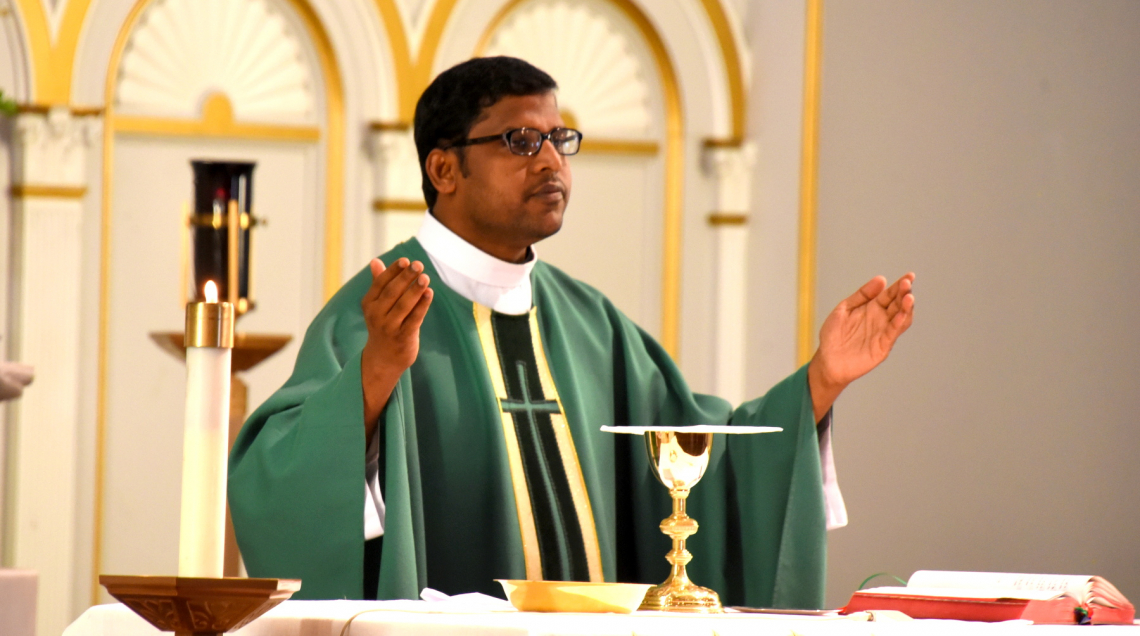The Sacraments - An overview

An Overview of the Sacraments
In my last article, I described a sacrament as a sign instituted by Christ to impart grace to those who receive it. Before proceeding to a quick overview of the seven sacraments, it seems worthwhile to explore that definition in a little more detail.
A sacrament is not something we blindly do for ourselves or our children to mark off a certain age or state of life. It is not a reward for completing a faith formation program. It is certainly not a graduation ceremony that allows us to stop coming to Mass. Sacraments are given to us by Christ in order to nourish our journey of faith throughout our lives.
Christ can give us grace in many ways. However, in the sacraments, we have ways that Christ has chosen for us as the typical means through which we grow spiritually – that is, how we are made holy according to the pattern of Christ Himself. We do not choose the sacraments; they are chosen for us by Christ Himself. They are Christ’s gifts to us, given to us out of His immense love. Can we spurn such love? Can we even imagine that we can come up with a better alternative than what Christ Himself gives us?
Sacraments are given to us in order to impart grace. They change us spiritually. The ritual in which we celebrate a sacrament is an outward sign of what the Lord is doing in the heart and soul and body of those who receive it. If we wish to respond to the love of the Lord and follow His will for us, the sacraments are an essential part of our yes to Him.
Christ has given the Church seven sacraments: baptism, confirmation, Eucharist, marriage, holy orders, reconciliation and anointing of the sick. The seven sacraments are often presented in three groups: sacraments of initiation, sacraments of Communion and sacraments of healing.
The sacraments of initiation – baptism, confirmation, and Eucharist – are the means by which Christ welcomes a person into full membership in the Church. Note that baptism, as crucial as it is, does not complete this process of initiation. The gift of the Spirit in confirmation and gathering at Mass to receive the Eucharist are also necessary. Everything points to the Eucharist and flows from it.
The sacraments of communion – marriage and holy orders – are the means by which Christ calls people to specific lifelong vocations in the Church (the married life and priesthood) and commissions people in those vocations. Since the family is called the domestic Church, marriage is very important for the building up of the Church. Given the centrality of the Eucharist and the need for shepherds in the Church, the ordination of bishops, priests, and deacons is also essential.
The sacraments of healing – reconciliation and anointing of the sick – acknowledge that our salvation is worked out in time and not immediately. We remain quite vulnerable to temptation and at times continue to fall into sin. On the other hand, illnesses, wounds, and traumas of various kinds can cause us great fear, can enslave us, and can become obstacles to the Lord’s love and grace. The Lord’s risen body still has the wounds of His Passion. Therefore, Christ has chosen to continue the ministry of forgiveness of sins and of healing – both so prominent in the Gospels – by giving us these two sacraments of healing and hope.
In subsequent articles, I will be focusing on each individual sacrament in turn. I hope that this short overview will help place the sacraments in their context and be a reminder for us all of their importance for the Church.
For further reading:
Catechism of the Catholic Church, nn. 1113-1134 on sacraments in general; nn. 1210-1666 on each of the seven sacraments
By: Father Mark Nolette, a priest of the Diocese of Portland










